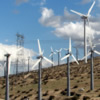The Lima News (OH), May 7, 2008 – 5:05PM
Annual report shows prosperity improves the environment
The environment worldwide is getting better and better, largely because of economic growth, efficiency and innovation. So says the 2008 Index of Leading Environmental Indicators, an annual report on worldwide air and water quality and climate change by the Pacific Research Institute, a San Francisco free-market think tank.

While government regulation plays a “central role” in improving the environment, PRI says, it would be ineffective if it were not for affluence and technological advances. That may be why PRI also warns that imposing drastic measures to curb manmade greenhouse gas emissions could roll back the very economic and technological gains essential to improving the environment.
For example, to reach the global warming alarmists’ goal – an 80-percent reduction in greenhouse gas emissions by 2050 – the United States would have to revert to a per-capita emission rate last seen in 1910. Considering the nation’s population will increase to 420 million by 2050, the per-capita rate would have to roll back even more, to a level “not seen in the nation since 1875.”
For perspective, “unless there is a genuine breakthrough in carbon-free electricity,” PRI concludes, “households will not be able to use enough electricity to run a hot-water heater without exceeding” the per-capita emission limit.
The only countries with greenhouse gas emissions that low “are desperately poor nations, such as Haiti and Somalia,” wrote PRI’s senior fellow of environmental studies Steven F. Hayward. “Automobile fuel consumption will have to fall by more than 80 percent.”
“The 80 percent reduction target is unrealistic at any price,” PRI concludes. Given the option of continued innovation and technological advances inherent in economic growth versus the economy-retarding Draconian limits on greenhouse gas emissions, it seems clear to us which one is preferable. Swedish environmentalist Bjorn Lomborg has made the same case for years.
Wealthy nations can afford to clean up the environment. Poor nations have their hands full just feeding people. The more money diverted from economic growth – and worse yet, the more money frittered away on counterproductive curbs to economic growth – the worse the environmental consequences.
Thinking green
Pacific Research Institute
The Lima News (OH), May 7, 2008 – 5:05PM
Annual report shows prosperity improves the environment
The environment worldwide is getting better and better, largely because of economic growth, efficiency and innovation. So says the 2008 Index of Leading Environmental Indicators, an annual report on worldwide air and water quality and climate change by the Pacific Research Institute, a San Francisco free-market think tank.
While government regulation plays a “central role” in improving the environment, PRI says, it would be ineffective if it were not for affluence and technological advances. That may be why PRI also warns that imposing drastic measures to curb manmade greenhouse gas emissions could roll back the very economic and technological gains essential to improving the environment.
For example, to reach the global warming alarmists’ goal – an 80-percent reduction in greenhouse gas emissions by 2050 – the United States would have to revert to a per-capita emission rate last seen in 1910. Considering the nation’s population will increase to 420 million by 2050, the per-capita rate would have to roll back even more, to a level “not seen in the nation since 1875.”
For perspective, “unless there is a genuine breakthrough in carbon-free electricity,” PRI concludes, “households will not be able to use enough electricity to run a hot-water heater without exceeding” the per-capita emission limit.
The only countries with greenhouse gas emissions that low “are desperately poor nations, such as Haiti and Somalia,” wrote PRI’s senior fellow of environmental studies Steven F. Hayward. “Automobile fuel consumption will have to fall by more than 80 percent.”
“The 80 percent reduction target is unrealistic at any price,” PRI concludes. Given the option of continued innovation and technological advances inherent in economic growth versus the economy-retarding Draconian limits on greenhouse gas emissions, it seems clear to us which one is preferable. Swedish environmentalist Bjorn Lomborg has made the same case for years.
Wealthy nations can afford to clean up the environment. Poor nations have their hands full just feeding people. The more money diverted from economic growth – and worse yet, the more money frittered away on counterproductive curbs to economic growth – the worse the environmental consequences.
Nothing contained in this blog is to be construed as necessarily reflecting the views of the Pacific Research Institute or as an attempt to thwart or aid the passage of any legislation.